La autorrealización espinosista como alternativa a la educación antropoplástica
La autorrealización espinosista como alternativa a la educación antropoplástica
Main Article Content
Abstract
In Paideia, Werner Jaeger describes the education of ancient Greece as anthropoplastic: persons must be shaped according to a normative ideal, in a process analogous to that of a potter shaping a jar according to a model. In general, we may call anthropoplastic any type of education that is organized around a pre-existing ideal of the kind of human it wishes to create. In general, we may call anthropoplastic any kind of education organized around a pre-existing ideal of humanity that it wishes to reproduce. The problem with this type of education is that it is reproductive: in as much as it is successful, it will reproduce the errors of a community. Fundamental change can only happen in spite of anthropoplastic education. The spinozistic conception of human flourishing, what Naess has called self-realization, can be used to formulate an alternative idea of education, without a normative model. There are three aspects of Spinoza’s system that are crucial to this alternative view of education: 1. His view on essence: unlike a platonic view (which undergirds an anthropoplastic view of education) in which a single essence corresponds to many individuals, in Spinoza there are individual essences. 2. The concept of conatus: following Naess and Matheron, we can show that conatus is not, properly understood, an impulse towards tautological self-repetition, but rather a creative effort to persevere through change under changing circumstances. 3. The distinction between laetitia and titillation, between the joy that comes from increasing the power of acting of a part of the body (which may be harmful), and that which accompanies an increase in the power of acting of the whole body. As a social body, anthropoplastic emphasis in a certain human type may cause a kind of social titillatio, for example a society emptied of critics and full of entrepreneurs.
Keywords
Downloads
Article Details
References (SEE)
Bateson, G. (1993). Espíritu y naturaleza. Buenos Aires: Amorrortu.
Beer, S. (1993). Designing Freedom. Toronto: House of Anansi.
Bove, L. (1996). La stratégie du conatus. París: Vrin.
Bula, G. (2010). Diversidad y cohesión. Polisemia, 6(10), 53-61.
Bula, G. (2017). Spinoza: educación para el cambio. Bogotá: Universidad de la Salle.
Calvino, I. (2011). Las ciudades invisibles. Madrid: Siruela.
Deleuze, G. (2006). Las cartas del mal: correspondencia Spinoza-Blyjenbergh. Buenos Aires: Caja Negra.
Deleuze, G. (2006). Spinoza: filosofía práctica. Barcelona: Tusquets.
Espinosa, L. (2007) Contra el miedo: Spinoza y Fromm. Themata, 38, 47-60.
Foucault, M. (2002). Vigilar y castigar. Ciudad de México: Siglo XXI.
Freire, P. (1977). Pedagogía del oprimido. Ciudad de México: Siglo XXI.
Gibran, K. (2003). El profeta [recurso en línea]. Recuperado de https://biblioteca.org.ar/li-bros/11402.pdf
Guevara, E. (1977). El socialismo y el hombre nuevo. Ciudad de México: Siglo XXI.
Jaeger, W. (1992). Paideia: Los ideales de la cultura griega. Ciudad de México: Fondo de Cultura Económica.
López, P. (2010). Biopolítica, liberalismo y neoliberalismo: acción política y gestión de la vida en el último Foucault. En S. Arribas, G. Cano y J. Ugarte (coords.), Hacer vivir, dejar morir. Biopolítica y capitalismo (pp. 39-61). Madrid: Los Libros de la Catarata.
Martínez, J. (2010). La universidad productora de productores: entre biopolítica y subjetividad. Bogotá: Universidad de la Salle.
Matheron, A. (1988). Individu et communauté chez Spinoza. París: Minuit.
Mill, J. (1997). Sobre la libertad. Madrid: Alianza.
Naess, A. (1975). Freedom, Emotion and Self-Subsistence: The Structure of a Central Part of Spinoza’s Ethics. Oslo: Universitetsforlaget.
Naess, A. (2008). The Ecology of Wisdom. Berkeley: Counterpoint.
Negri, A. (2000). Spinoza subversivo. Madrid: Akal.
Page, S. (2007). The Difference: How the Power of Diversity Creates Better Groups, Firms, Schools and Societies. Princeton: Princeton University Press.
Ravven, H. (1989). Notes on Spinoza’s Critique of Aristotle’s Ethics: From Teleology to Process Theory. Philosophy and Theology, 4(1),3-32.
Spinoza, B. (2011). Ética. Madrid: Alianza.








